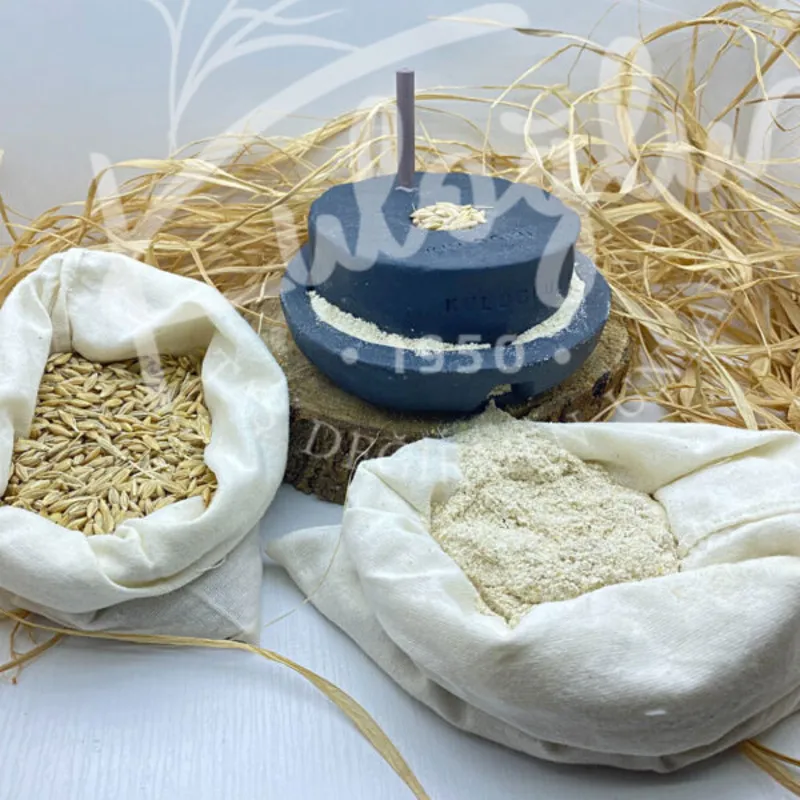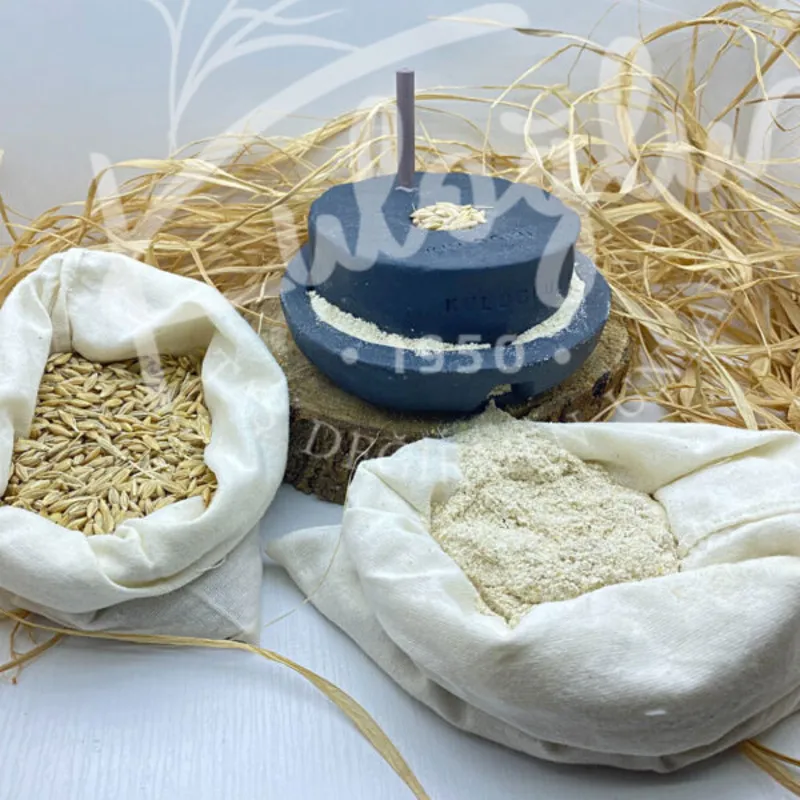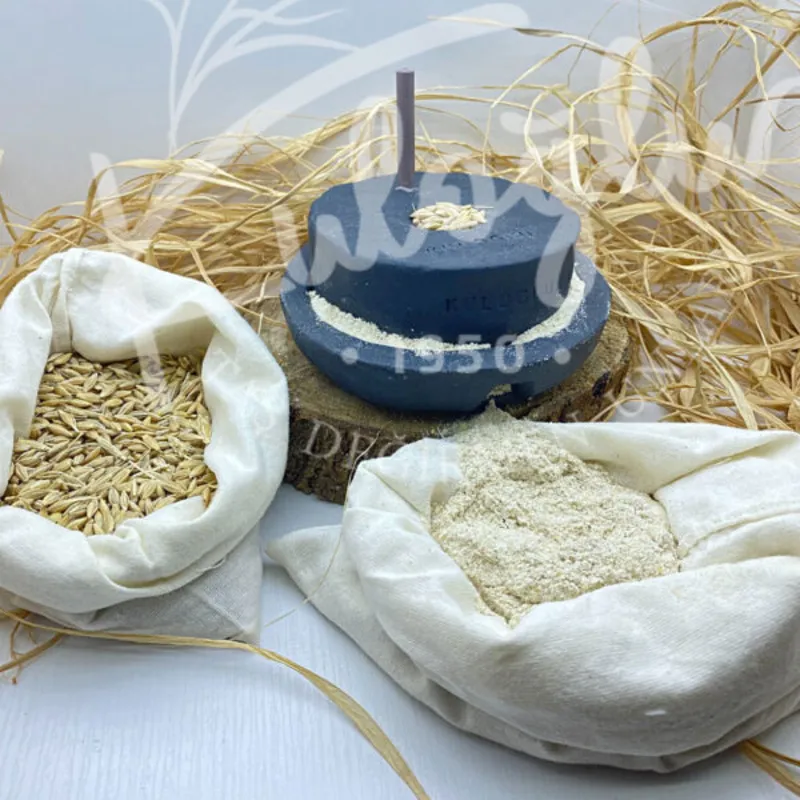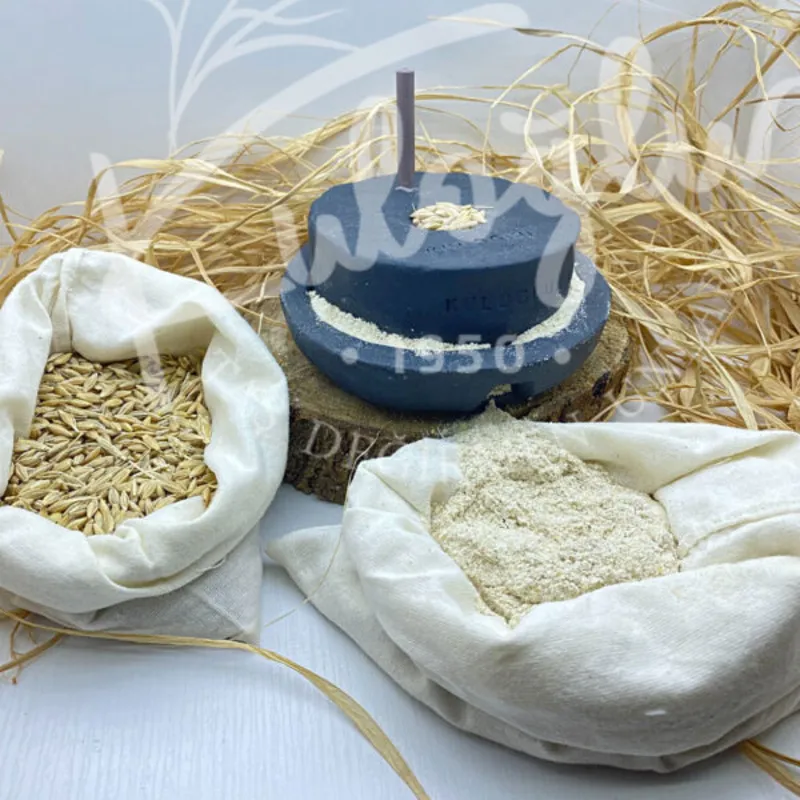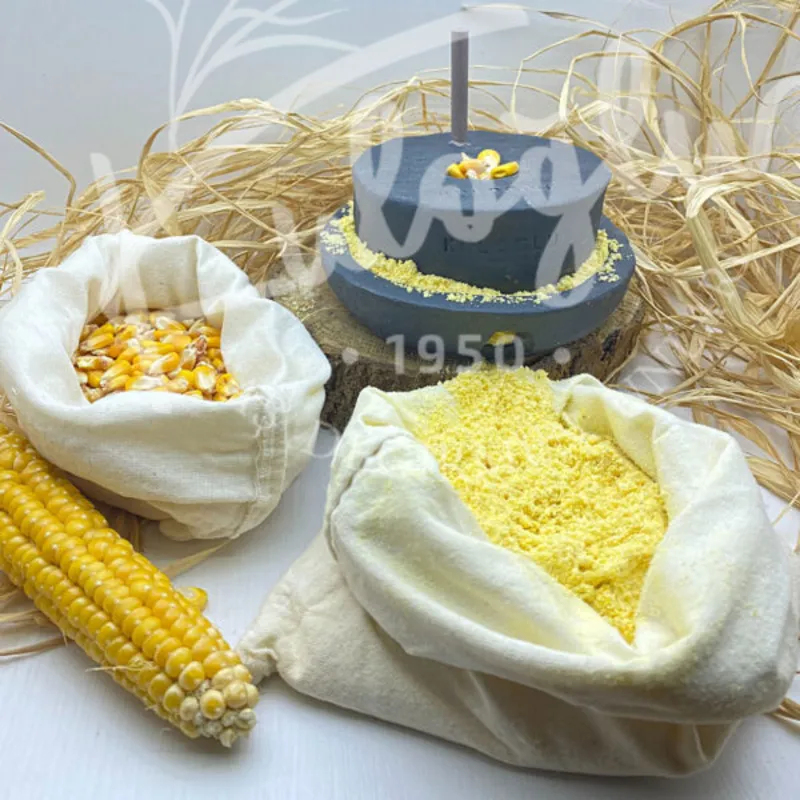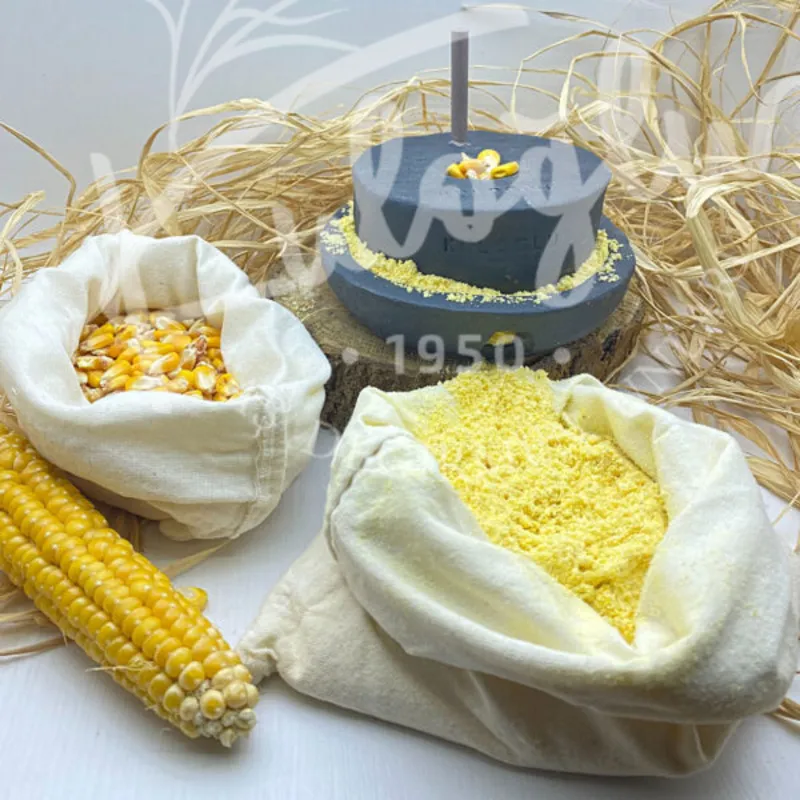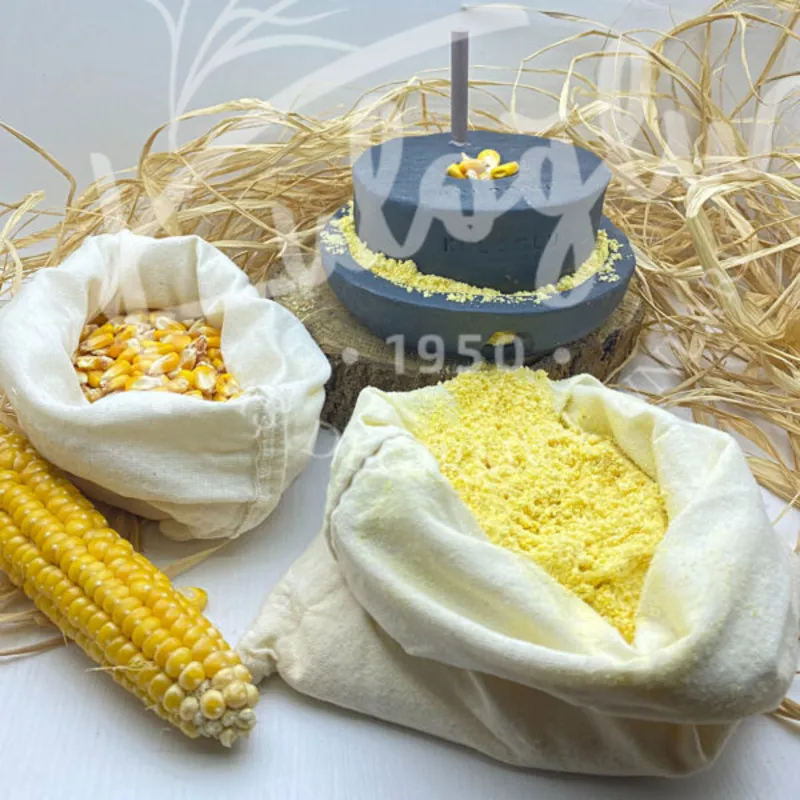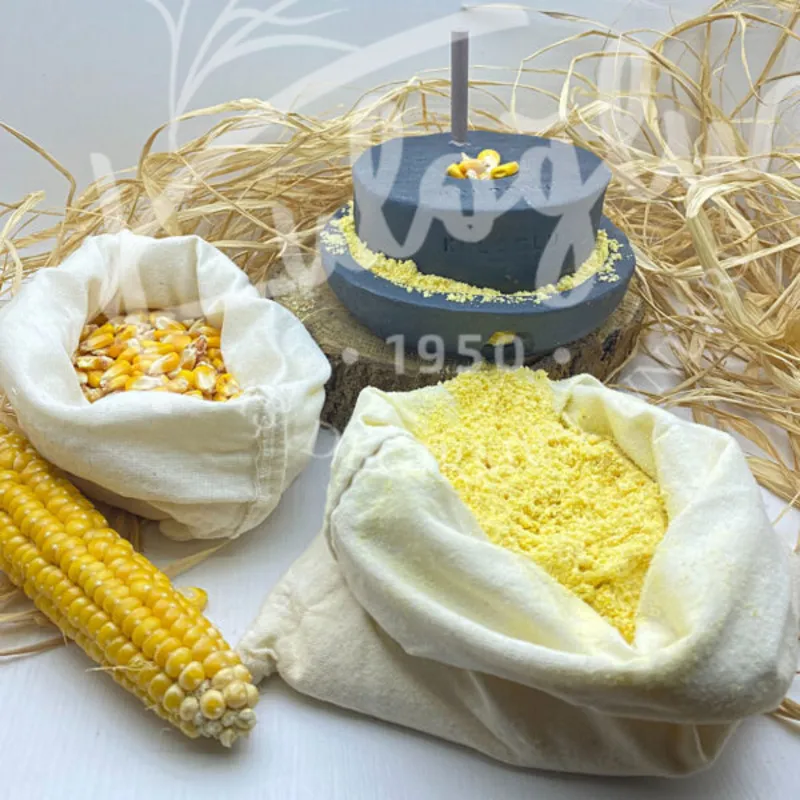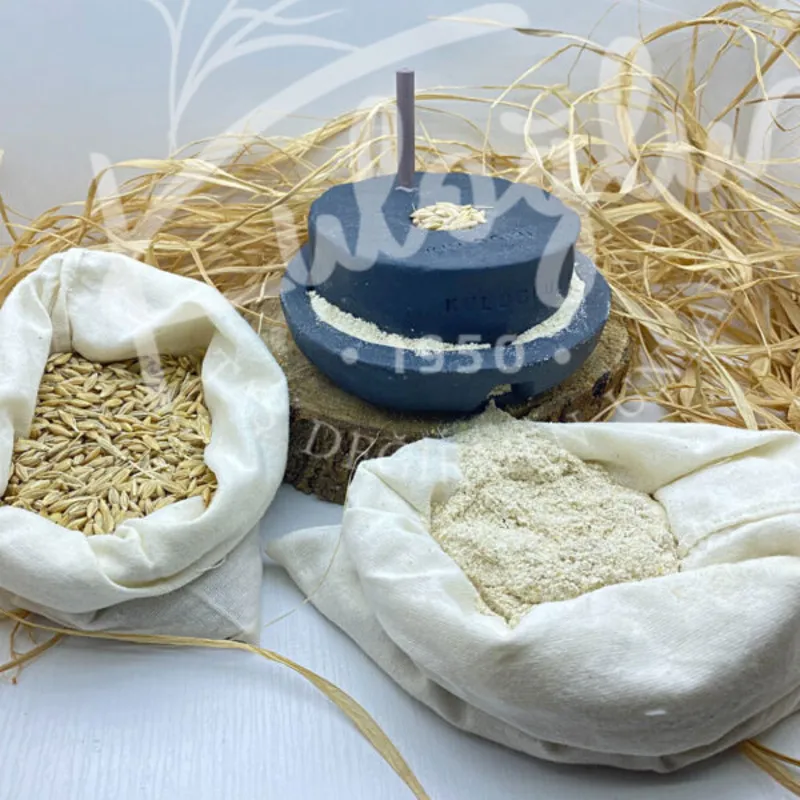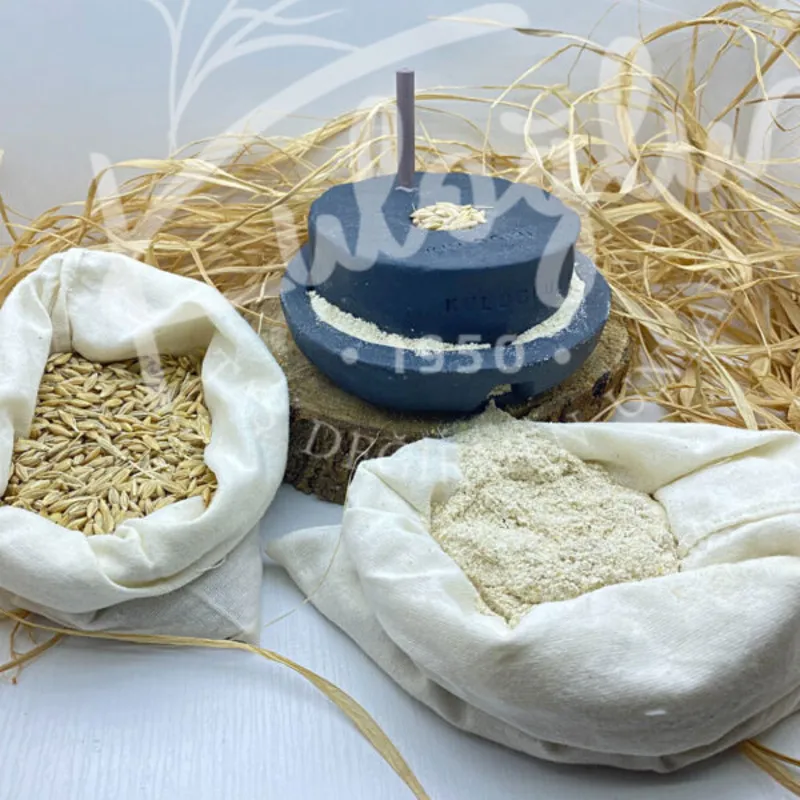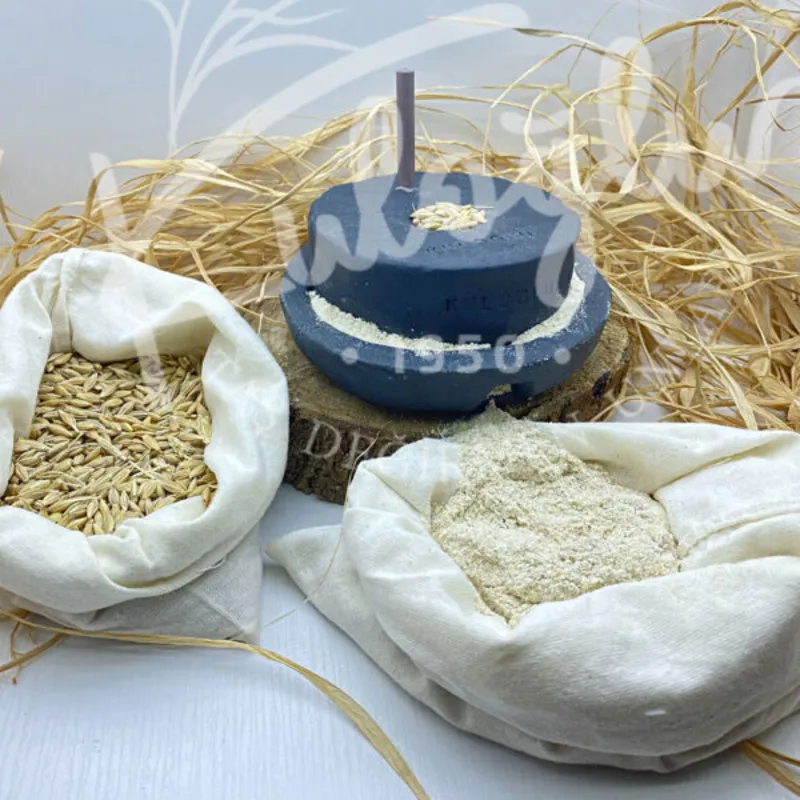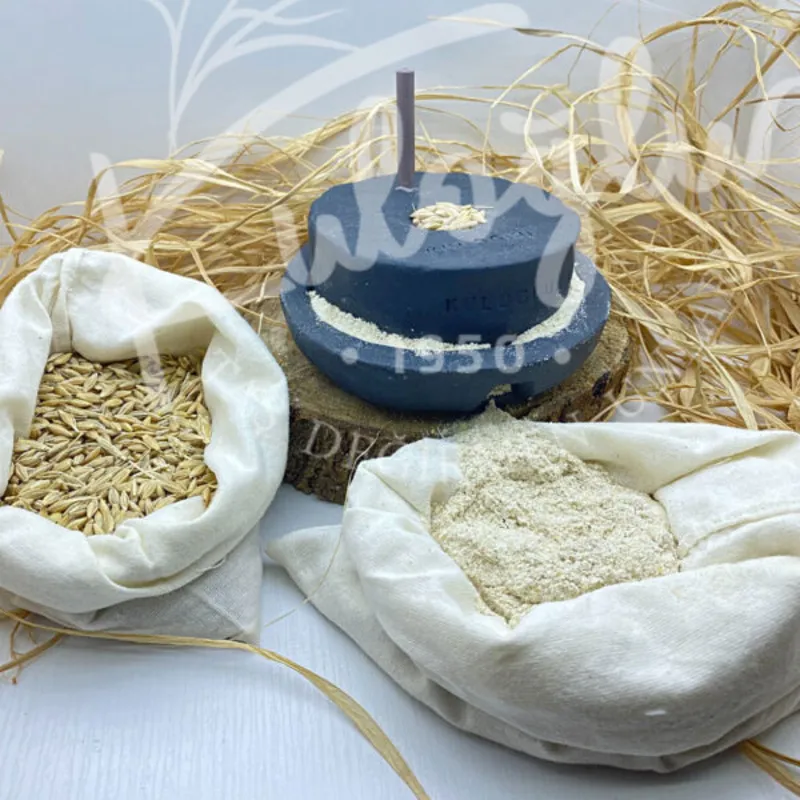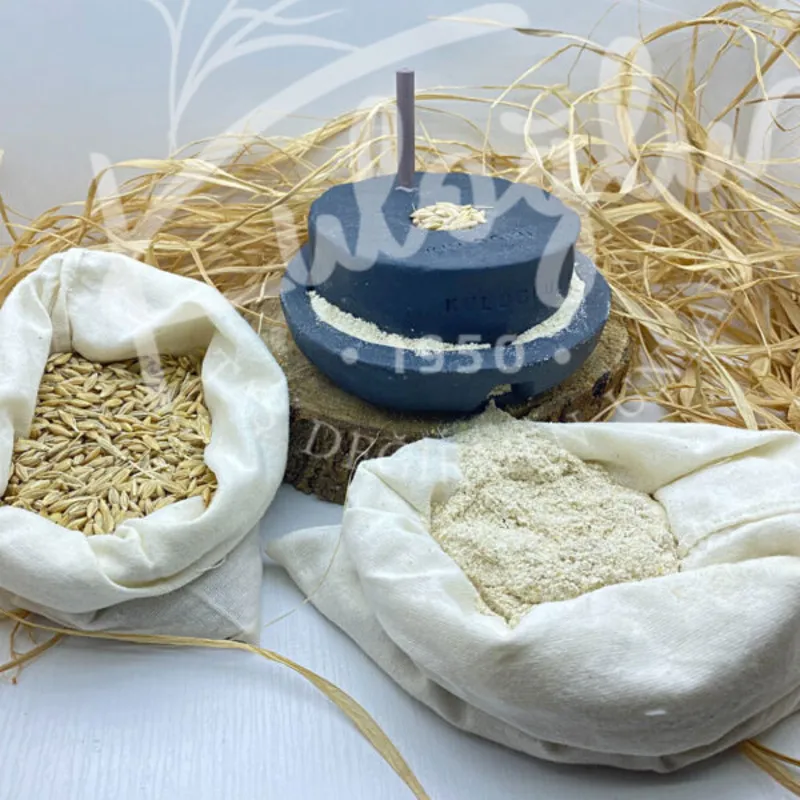Organic Corn Flour 5 KG Gluten-Free Natural Flour Additive-Free and Fresh
Each order of this product donates to children with leukemia ₺14,00 .
CORN FLOUR
CORN is one of the few rare plants that has been cultivated for thousands of years. The findings from all archaeological excavations show that the corn plant has a history of 8,000 to 10,000 years. It has been determined as a result of some research that corn spread to the world from the American continent. The corn plant has spread very quickly and easily all over the world thanks to its high rate of reproduction (producing approximately one thousand from one) and its high yield potential. Since corn can be grown in tropical, subtropical and temperate climate zones, corn farming is possible in almost all countries of the world. The fact that this plant has been given the name corn in our country is an indication that this plant entered through Egypt and Syria.
Corn is the most cultivated grain crop in the world after wheat and rice. Although corn can be grown in almost every region of our country, it is most concentrated in the Black Sea Region.
CORN FLOUR
After the corns are collected and their outer shells are removed, they are laid out in the sun to dry thoroughly so that they do not mold. With the development of technology, this drying process is also achieved with large drying machines. In addition, in the drying process, roasting the corns in the cob in the oven both allows them to dry faster and gives the corn a more satisfying flavor as the corn is roasted. Then, the dried corns need to be crumbled and separated from their cobs. The corns separated into grains are taken to the mills and ground thoroughly and then become flour. It has a light yellow color, thin, soft texture, and roasted corn has a darker and more intense smell than other corn. Although corn flour is opaque and remains white when dissolved in water, heat turns this solution transparent.
SOME USAGE AREAS;
– Used as filler, adhesive.
– Used in bread making
– Used in cooking meat and fish
– Used in making cakes and soups
– Used in pastries
BENEFITS OF CORN FLOUR;
– Corn flour helps remove toxins from the skin. Corn flour, which is said to remove toxins from the skin thanks to the various vitamins it contains, also protects the skin against harmful UV rays.
-Corn flour prevents darkening in various parts of the body.
– Various vitamins in corn flour also prevent the formation of blackheads and acne, ensuring the skin is moisturized.
– Corn flour is rich in zinc, so it renews cells and contains healthy proteins for DNA.
-Corn flour is rich in potassium, magnesium, phosphorus, iron, folic acid and fiber.
– Corn flour benefits skin and nail health. It is also said that corn flour, which is beneficial in eliminating anemia, protects eye health.
– Corn flour, unlike barley and wheat flour, does not contain gluten. People with gluten allergy, known as celiac disease, cannot digest gluten, a sticky protein. These people can use corn flour instead of wheat flour in their food such as bread, desserts, meatballs, etc. Here, the situation may vary if your gluten sensitivity is very high.
CORN FLOUR PROTECTION SHAPE;
They should be stored in a closed box, preferably glass or plastic, in cool, dry and closed places. The refrigerator is a suitable storage place in terms of coolness and dryness, but flour absorbs odors in the refrigerator very quickly. As a solution, flour can be protected with an extra storage container or bag. Placing a bay leaf, horse chestnut or walnut leaf on it will help keep insects and bad odors away from the corn flour. You can apply these storage methods to other flours and grains as well. Additive-free and natural flours do not contain additives to whiten or turn yellow. Especially in order to keep the shelf life long, you should store and preserve all natural flours you have purchased in this way, as there are no chemical additives. Corn flour that has been waiting for a long time has a slight darkening in appearance and a bitter taste when eaten.
```

